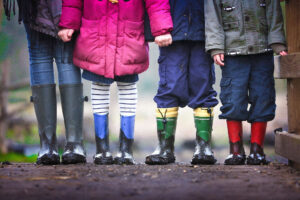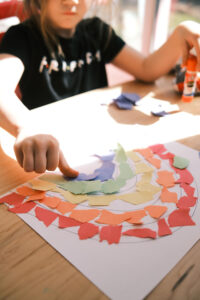The Children’s Bill of Rights in divorce proceedings seeks to keep a child’s wellbeing at the forefront of both parents’ minds and gives all adults the foundation upon which to advocate for kids caught up in separation conflicts
As the political landscape over the last 50 years has changed to reflect the crucial need for gender equality and freedoms, divorce rates have also experienced a sharp rise, and you would be hard-pressed now to find a person who as an adult or as a child (or both) hasn’t been deeply affected in one way or another by divorce.
“For a young child, psychologically, divorce is the equivalent of lifting a hundred-pound weight over the head,” explained well-known divorce researcher and author Dr. Judith S. Wallerstein (as referenced by non-profit organization Family Reunion here). “Processing all the radical and unprecedented changes—loss of a parent, loss of a home, of friends—stretches immature cognitive and emotional abilities to the absolute limit and sometimes beyond that limit.”
With these factors and other relational challenges in mind, lawmakers in Texas and other states have sought to protect kids’ mental and physical wellbeing with compassionate legislation.

What is the Children’s Bill of Rights?
The Texas legislature created a list of guidelines meant to ensure that children are protected from parent conflicts, specifically those conflicts that involve the separation of a family unit and a child’s adjustment to his or her new normal. All child welfare advocates, including family lawyers, social workers, and concerned family members, should use these guidelines to stand up for minors in their care.
At its core, the Children’s Bill of Rights in divorce situations establishes that children have a right to love and to be loved by both parents regardless of marital status, AND that children may not under any circumstances be weaponized by one parent against the other parent.

What is listed in the Children’s Bill of Rights?
While the Children’s Bill of Rights is appropriately lengthy and directed to the parents of the children, we have summarized it into the following eight broader categories:
-
Children have the right to contact both parents and communicate openly through various channels without imbued shame or consequences from either party.
-
Children have the right to enjoy family relationships without exposure to criticism by one parent regarding the other parent, including but not limited to criticism targeting his or her character, life choices, career and/or relationships.
-
Children have the right to remain uninvolved from all adult verbal discussions of divorce proceedings, including living situation negotiations and child support agreements.
-
Children have the right to feel accepted in both parents’ homes without the other parent inflicting guilt or any sort of physical or emotional harm upon the child. This includes the child’s ability to keep family photographs, toys, gifts, and other personal items in both homes without incrimination or harm coming to those items from either parent.
-
Children have the right to be heard for their own experiences without trivialization.
-
Children have the right to the preservation of their own voices separate from either parent and may not be used as “middlemen” between parents.
-
Children have the right to live free from punishment by either parent for their relationships with each parent. This includes the guarantee that a child will not be rewarded or manipulated in any way by either parent for misbehaving or mistreating the other parent.
-
Children have the right to safety, including safe transportation and living environments.
What are the consequences when children’s rights are ignored?
What if one or both parents ignore their child’s rights? The answer is two-fold. Foremost, a judge can impose penalties upon the parent as that judge sees fit given the full scope of the situation. Second, the child in question experiences greatly increased odds of suffering more severe, negative, and lasting effects from divorce.
Legal ramifications
It is impossible to list all the possible legal ramifications in cases where one or more parents have violated their children’s rights during or after a divorce, but criminal and civil penalties are on the table based on how severe the offense. On the less severe end of the spectrum, visitation or custodial rights can be changed/removed, fines can be issued, court-ordered parental education can be required, and other consequences similar in nature. While the court always strives to make decisions based on the best interest of the child, these cases can become murky and messy given the nature of the broken relationships and trauma inflicted upon the child.
Child wellbeing ramifications
Children are resilient and unique when it comes to how they are impacted by infringements upon their rights. By nature, children want to love and be loved and tend to overlook more easily and to forgive in order to preserve their family relationships. These tendencies change based on the age of the child during the divorce, the temperament of the child, and their past and current home environments. These factors being understood, there is no single litmus test to determine exactly how a child will process or internalize parental mistreatment.
As a generalization, however, children who are involved in high-conflict divorce situations experience more trauma and are less able to cope in healthy manners. According to licensed clinical psychologist Dr. Ann Gold Buscho in her article for Psychology Today, “High-conflict [divorce] refers to the parents’ verbal or physical altercations witnessed or experienced by the children. The conclusions are clear. The more extreme your conflict with your spouse or ex, the more your children will suffer in the short and long term” (2019). So, while we can’t paint the exact portrait of the negative impact upon each child when he or she is not protected from their parents’ conflict, we do know unequivocally that a child’s wellbeing is deeply harmed in the short-term and altered in the long-term when exposed to higher levels of parental verbal or physical altercations, especially if that anger is misdirected at the child.
 According to the FamilyMeans counseling and therapy center, their counselors see children of divorced parents experience poorer academic performance, social engagement, increased difficulty adjusting to change and regulating emotions, misplaced feelings of guilt, introduction of new destructive behaviors, poorer physical health and increased cynicism in traditional institutions such as marriage. These findings do not delineate between children who are involved in high-conflict divorces versus those who have parents who choose to protect their kids from the brunt of adult discussions and emotional upheaval. However, this list alone emphasizes the importance of upholding the Children’s Bill of Rights as a community.
According to the FamilyMeans counseling and therapy center, their counselors see children of divorced parents experience poorer academic performance, social engagement, increased difficulty adjusting to change and regulating emotions, misplaced feelings of guilt, introduction of new destructive behaviors, poorer physical health and increased cynicism in traditional institutions such as marriage. These findings do not delineate between children who are involved in high-conflict divorces versus those who have parents who choose to protect their kids from the brunt of adult discussions and emotional upheaval. However, this list alone emphasizes the importance of upholding the Children’s Bill of Rights as a community.
“Divorce is a life-transforming experience. After divorce, childhood is different. Adolescence is different. Adulthood – with the decision to marry or not and have children or not – is different. Whether the outcome is good or bad, the whole trajectory of an individual’s life is profoundly altered by the divorce experience.” -Divorce researcher Dr. Wallenstein as referenced in the epublication of Should I Keep Trying to Work It Out? by Alan J. Hawkins, Ph.D. and Tamara A. Fackerell, J.D.
Children may be resilient, but as adults we have the responsibility to advocate for their rights and soften the impacts of divorce as much as possible. Perhaps the key to setting a child up for success during a divorce is to have an agreed upon co-parenting plan between both partners and then an additional “village” of support people and resources intentionally built into a child’s life during this tumultuous season. The Child Mind Institute provides three main tips for parents during divorce proceedings:
Model calm
This strategy applies to how both parents interact with one another and with the child. Children need as much normalcy as possible, and they also need to be able to witness the adults in their lives exuding a “we’ve got this” attitude as the situation changes. Strive to provide both structure and calm.
Be civil about your ex
Children are not the place to dump your feelings. Clinical psychologist as the Child Mind Institute Jamie Howard, Ph.D. explained, “Someone could be a lousy spouse and a good parent, and you really don’t want to deprive your child of a good parent. Kids do better with two loving parents, divorced or married.”
Two loving parents is obviously the ideal situation and not always possible if one parent is abusive, absent or otherwise uninvolved. However, it is not healthy either way for a child to feel as though they are responsible for holding and processing the anger and hurt of a parent. As listed at the very end of the Children’s Bill of Rights published by the Children’s Rights Council, ” We need each parent to be the adults of our new family structure and act accordingly.”
Get support
Get support for your child. Get support for yourself. Don’t go it alone during a divorce when you already have so much to manage and most likely will not have the energy, emotional capacity, or even trained knowledge to help your child or you emerge healthy and well-adjusted on the other side of all the legal proceedings.
While there are a plethora of private counselors, psychologists, and tutors available to hire, most communities also offer free resources to support families during challenging times. Talk to your child’s teacher and/or school to find out who might be available to support your child. Many schools, churches and community centers have free support groups and counselors on staff for children and adults. Non-profit organizations often have many virtual resources for families, such as this Shared Parenting Agreement by the Children’s Rights Council to help separated parents establish a groundwork for future co-parenting communication and plans.
Travis County has many available supportive resources, including DivorceCare for Kids (DC4K) and the Austin Child Guidance Center.
At the end of the day, don’t lose sight of the fact that your new family unit is going to require patience, self-compassion, and community support to thrive again after a divorce. Your child(ren) may be resilient, but that doesn’t change the fact that they need to be told and shown daily by the authority figures in their lives that they are loved, validated, and not responsible for adult decisions. They are simply free to be who they are: children.
Get advice from an experienced Texas Family Law Attorney
Divorce proceedings can range from straightforward and amicable to high-conflict and are complicated when there are children involved in the divorce. Because of this, we recommend that you have not only mental health professionals on board to support your child and yourself, but also a family law attorney who will keep your child’s best interest at the forefront of all proceedings.

Kelly J. Capps is an experienced family law attorney and can explain the legal aspects of your case, offer tips to help make sure you get a fair settlement, and make sure that your child’s rights are upheld at all times. She works hard to find the best path for her clients and their families to thrive.
Notice
This article does not create an attorney-client relationship. Its purpose is to educate the public about the topic of family law. This article should not be seen as legal advice. You should consult with an attorney before you rely on this information.


